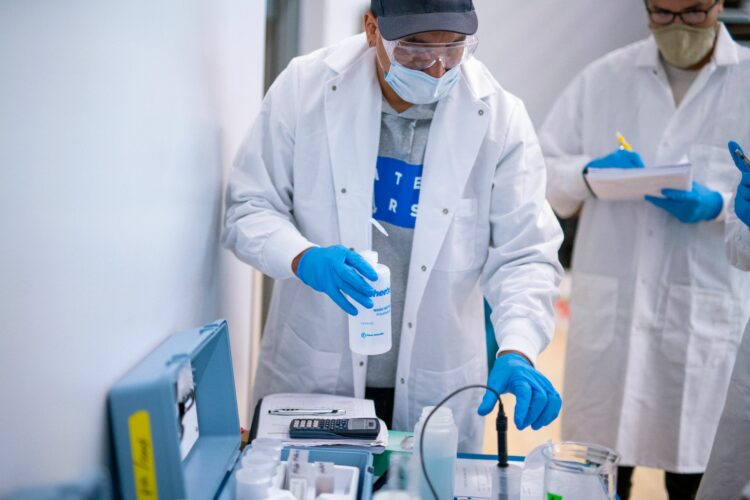Serpent River First Nation – This World Water Day, Mamaweswen, The North Shore Tribal Council (NSTC), with seven member First Nations in Northern Ontario, and Canadian charity Water First Education & Training Inc. announce their partnership to deliver the NSTC Water First Internship, a drinking water treatment and environmental water science training program for young Indigenous adults. Approximately 14 interns will be recruited from seven participating First Nations communities across the tribal council’s region to pursue Operator in Training (OIT), Entry Level Course (ELC), and Water Quality Analyst (WQA) certifications, which help trainees begin their careers in the water field.
The collaboration will address the local community-identified need for the recruitment and training of more young adults to the field of water science. The comprehensive internship and certification program helps increase local, technical capacity in the water management field, not only for today, but for future generations as well.
Angus Toulouse, Mamaweswen CEO, said, “We started discussing this potential project with Water First in the fall of 2021. Today, we are excited to announce a partnership that will help recruit and train young Indigenous adults in the field of drinking water treatment. Current operators in our member communities do a terrific job with the resources available to them, and it’s recognized that more young, local operators are needed to help continue providing safe drinking water to our residents. With their focus on running local water plants, our operators are simply too busy to also design and deliver a comprehensive recruitment, training and tutoring program like the one Water First offers. Through this important partnership, we look forward to supporting the next generation of local water operators who will help protect the health and wellbeing of their communities and families.”
The NSTC Water First Internship is partly funded through North Shore Tribal Council and member First Nation program resources, together with the support of Water First’s donors. During the Internship program, commencing summer of 2022, each intern can accumulate approximately 1,800 hours of on-the-job experience in water treatment plants, which is a part of the certification process. Through the 15-month program, interns pursue provincial certifications, which can lead to work in both drinking water treatment and the environmental water field.
“The Internship program is designed to support young Indigenous adults to obtain the provincial water treatment certifications and experience required to become water treatment plant operators. Through a mix of locally based trainings and hands-on experience in water plants, the interns learn and apply the skills needed to perform an important role for communities in addressing local water challenges, both now and in the future. We look forward to partnering with Mamaweswen to implement this critical program,” said John Millar, executive director at Water First.
To date, Water First has successfully implemented three internship partnerships including: one in partnership with eight First Nations in the Georgian Bay area that will see interns graduate in the fall of 2022, and two completed internships with the Bimose Tribal Council and eleven affiliated First Nations, and the pilot on Manitoulin Island in partnership with seven First Nations through the United Chiefs and Councils of Mnidoo Mnising, Wiikwemkoong Unceded Territory, and the Anishinabek Nation.

Nathan Pamajewon, a Water First intern from Shawanaga First Nation, shares, “I believe this to be a career for myself. I’ve enjoyed all the experiences so far; that I have been given the chance to obtain greater things in life. I want to see our community grow and become the best it can be; provide the best and safe drinking water for my community, or another community that’s not mine.”
Many First Nations with drinking water challenges have identified the need for more young, qualified and local personnel to support solving water issues independently and for the longer term. Indigenous communities do not receive adequate, locally based education, training and employment support when it comes to attracting and retaining young people in the water science fields. These supports are critical to ensuring the long-term sustainability of Indigenous drinking water systems.













Attracting and retaining youth into engineering careers especially underrepresented groups is a win-win in so many ways.
It brings diversity and inclusion in a sector needing just that, but also help us feed the void in skilled labor force we are experiencing as an industry.
Thanks for your important work!